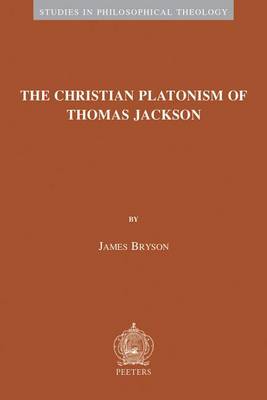Studies in Philosophical Theology
1 primary work
Volume 58
Although Thomas Jackson (1579-1640) is recognized by scholars as the
most important theologian of the Laudian church, hitherto there has been
no comprehensive study of his philosophical theology. The reason for
Jackson's neglect is that scholars have been puzzled by the sources,
character and influence of his Christian Platonism. From a close and
comprehensive reading of his magnum opus - a massive twelve book
commentary on the Apostles' Creed - this book shows how Jackson regards
the Platonic tradition as an essential and perennial resource for the
Christian theologian, anticipating and informing central aspects of
Christian theological speculation and belief, given by divine providence
to help him interpret and defend his creed. Special attention is paid to
the influence of Nicholas of Cusa (1401-1464) on Jackson, an important
moment in the history of thought since the German cardinal is generally
thought to have been without intellectual successors in the early modern
period.
most important theologian of the Laudian church, hitherto there has been
no comprehensive study of his philosophical theology. The reason for
Jackson's neglect is that scholars have been puzzled by the sources,
character and influence of his Christian Platonism. From a close and
comprehensive reading of his magnum opus - a massive twelve book
commentary on the Apostles' Creed - this book shows how Jackson regards
the Platonic tradition as an essential and perennial resource for the
Christian theologian, anticipating and informing central aspects of
Christian theological speculation and belief, given by divine providence
to help him interpret and defend his creed. Special attention is paid to
the influence of Nicholas of Cusa (1401-1464) on Jackson, an important
moment in the history of thought since the German cardinal is generally
thought to have been without intellectual successors in the early modern
period.
